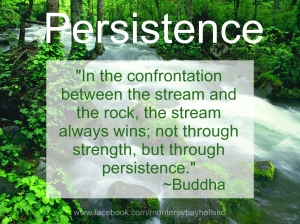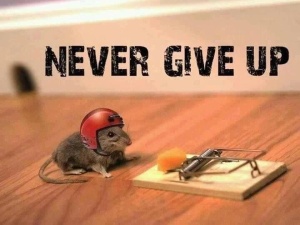Image courtesy of Placement University
I recently met with a young man who is a college senior, a year away from graduating with his professional degree. Unfortunately, he is starting to flounder so badly due to increasing anxiety, that combined with his learning disability I’m not certain he will make it through his final year successfully. When I offered to walk with him to the Counseling Services office so that he could make an appointment he told me this would be a waste of his time. “I’ve tried counseling before, it didn’t work.” His attitude was, there was only one solution to his problems and he was not willing to consider other options.
This young man was not in an emotional or psychological place where he was prepared to discuss his opinion on the value of counseling or trying different methods of solving his problems – perhaps in a future meeting that will change; perhaps as a student he will not be successful; or he may struggle through this last year on his own. People choose to struggle sometimes when there are other options they are not willing to consider.
Normally I would consider the family the best source of teaching the “try, try again” approach towards not settling for one attempt of a practice before writing it off as useless. Families are the best source of the lesson of persistence because families can live this example. Parents, grandparents, older siblings, cousins — these can all be sources of living the example of the power of persistence. Having an attitude of trying more than once, or trying a similar thing with a slightly different approach is a practice that comes in useful throughout one’s life, certainly not just with trying different counselors.
Not all students, however, will have families that have successfully role-modeled problem solving. When we encounter a young person with no problem solving skills, we have to consider that this may be what they learned at home – how to not solve problems but simply to maintain great anxiety in the face of difficulty. As educators and mentors, when we can find ways to show the value of persistence, re-trying, and adjusting our approach to a problem without giving up, we can assist young people who have not learned these skills at home.
How can an educator incorporate this lesson into the classroom? I will offer several examples and invite others to share their own ideas and methods for encouraging both persistence and problem solving development in the classroom, or the scout troop, social group, etc.
Assignments can be designed so that they are essentially an exercise in problem solving. For the sake of students who benefit from hands on practice, an activity that students can physically participate in works well for encouraging both participation and active learning. One of the problem solving assignments that is given to engineers at the school where I work is to design a very small vehicle that is propelled by the action of a mouse-trap snapping. Students can design any type of vehicle, they can use wheels and platforms of their own choosing, and once the vehicles are made students see which vehicle designs move the farthest and which can move up an incline. Students are then asked to explain what they could change about their vehicle to make it even more efficient or powerful.
Assignments do not have to be so physically active, however, to allow students to learn the value of revision and rethinking their approach to a task. Writing assignments can be planned so that there is a built in revision process. This process includes requiring rough drafts which receive written feedback, with suggestions for areas of further explanation, research, or arguments that can be developed. This process allows students to practice revising their approach to writing. Giving grades/points for revisions during the writing process show students that a teacher values taking time to think in more depth about a topic, while also teaching that good writing usually requires more than one draft.
Neither families nor teachers can necessarily teach all students that there is value in discussing their problems with others — an essential element of counseling; some people will continue to believe that counseling is a waste of their time, whether they’ve tried it once or never. Learning persistence, though, and learning the value of being able to rethink the approach one takes to solving a problem are lessons that are too valuable not to actively teach the young people in our lives. Living the example of persistence is perhaps the most powerful way we can teach this lesson. Discussing problems and solutions also has great value, particularly for young people with learning disabilities who learn best when they are able to verbalize ideas.
I welcome parents, family members, mentors and teachers to share their own ideas and examples of a way they have taught problem solving or the value of persistence.






What an outstanding article you have written here! As a piano teacher who fully understands the value of showing the value of persistence and practice, all the time showing the ultimate goal before the student’s eye-playing in a legato way and giving others the gift of music.
This is a novel idea of asking educators how they would implement this quality in the class room.
I will be interested to read the responses from this.
Feel free to join my site “Totally Inspired Mind” and ask your friends to as well. I think the very people who would respond to your post here would be interested in the subject matters on my site.
Paulette Le Pore Motzko
Reblogged this on Totally Inspired Mind and commented:
Read this outstanding article from StemCollege about how to prepare disabled students on the value of persistence. I know about this all too well, because I was once one of them enrolled in Special Ed classes and Adaptive PE classes later in my life.
The ability to be a positive role model for others with disabilities is critical. To inspire another human being to become, to grow to greater heights is my greatest pleasure on earth.
Paulette Le Pore Motzko
http://www.TotallyInspiredPC.wordpress.com
Thank you Paulette – I’m trying to follow your blog but experiencing some technical problems this morning 🙂 I guess I need to have my first cup of tea before anything is going to work today….
I appreciate your blog post about the value of respect and honesty!